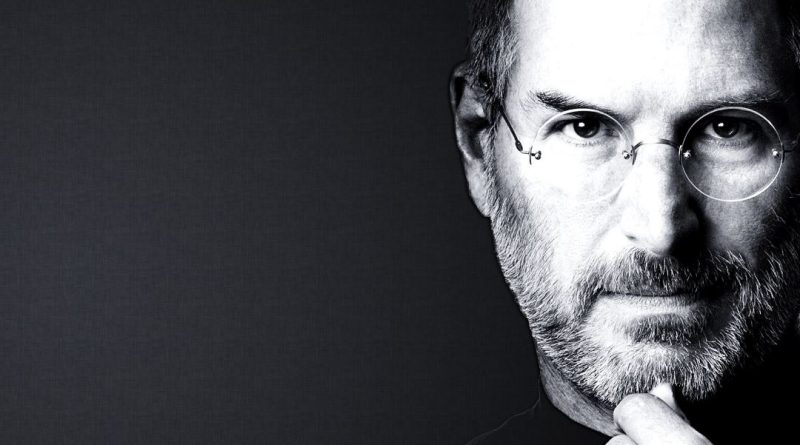Entrepreneurial creativity according to Steve Jobs
According to Steve Jobs, creativity is the ability to imagine possibilities, imitate brilliantly, think innovatively and act differently. Creative thinkers use the process of shattering the status quo to create original ideas or imitate the existing ones, thereby creating a pool of entrepreneurial ideas, which potentially may lead to product differentiation/variation and dynamism in the business environment.
Creativity is a relative terminology.
Jobs says that it can be as basic as re-arranging a group of items or replacing them with better versions. It can also be as complex as thinking outside of the prescribed formulas to birth inventions/innovations, or prescribing solutions intuitively from the ‘Spirit’ to birth the supernatural!
Entrepreneurial creativity is everything about thinking and thinking about everything.
“Thinking is often more important than we think.” He said.
Transforming raw materials into finished products requires a clear vision and entrepreneurial creativity (innovation). Entrepreneurial creativity is the passion to create value and the capacity to follow through to see that value (innovation/solution) is commercialized for profit or impact, or both.
Passion or talent is however not enough; it takes leadership (vision), determination, deliberateness and doggedness to create wealth. By creating relevant, useful and necessary innovations/solutions, businesses are birthed, jobs are created, and wealth is circulated. The creation of economic values in products and services could be achieved through the following methods/approaches:
Borrowing brilliance
The books we read, the contents we produce and consume, the places we visit and the information at our disposal are some of the sources of idea generation. Original ideas don’t actually exist, for there is nothing new under the sun. However, creative entrepreneurs know how to creatively borrow the brilliance of others to create new ideas and hide their source. An elitist mind will list his references though.
Experience
Exposures and experiences have greatly shaped the way we think and act. Nothing beats experience! Experience they say is the best teacher! Entrepreneurial creativity becomes richer as experiences garnered in a specialized and generalized field widen.
Having a generalist mindset is knowing a little about everything! Having a specialist mindset is knowing everything about a little! A generalist is a dabbler, an explorer, a learner, someone with broad knowledge across many topics and expertise in a few.
It is easier and much better to innovate or invent when you have a diverse range of knowledge and expertise. This is because you are bringing in opinions and perspectives from different fields and synchronizing them to create a wholesome solution. So, as a creative person, you must ensure that you gain a wide view of the world.
This is not to say that you must become a dabbler that jumps from one thing to another. The point is to collate knowledge, viewpoints, and opinions from different (and even opposing) fields, and then integrate these to create a novel outcome or product.
Does this mean you shouldn’t gain expertise in a single subject? No.
Expertise is the hallmark of practice. But when it comes to entrepreneurship, expertise must be combined with some novice/amateurish knowledge in other fields. Don’t lock yourself unto just a single idea. Be free and try out a thousand other things. The common proverb sums it up: learn something about everything and learn everything about something. If you are very good at art, try to learn some science too.
Is writing your strength? Try to learn a few things about graphic design. Are you a seasoned public speaker? Try to learn some acting too. Becoming a polymath equips you with a large arsenal that can be deployed at various times.
An interesting study carried out by Michigan State University on Nobel Prize winners showed that the Nobel laureates have three times more adult avocation when compared to the general public. In the science category, most of the laureates were actively involved in arts like painting, music, and drama. This cross-field knowledge gave them a greater opportunity to come up with original ideas that others struggle to get.
You can also become more creative by exploring new fields and deliberately integrating the knowledge you’ve learnt in all the varying fields. It involves you to simply find the connections that may exist between different things.
Experimentation
As an inventor, Edison made 1,000 unsuccessful attempts at inventing the light bulb. When a reporter asked, “How did it feel to fail 1,000 times?” Edison replied, “I didn’t fail 1,000 times. I have just found 10,000 things that do not work.”
Education
The responsibility of higher institutions of learning is not just to take tuitions, or produce employable graduates, their utmost responsibility is to produce graduates who will in turn become producers of economic and social values in their own rights, through periodic curriculum reviews, adequate funding of education by the government and an appropriate use of funds.
Inspiration/Supernatural information (revelation)
Developing the sixth sense or intuition is one thing, living by inspiration is a different thing entirely. There are some things that are beyond the intellect or expertise; divine inspiration is divinity in humanity! Knowledge is infinite. Divinity is Infinity! Developing affinity for knowledge, understanding and wisdom is the cheapest route to divinity (inspiration).
Wisdom is the principal, primary raw materials for the making of entrepreneurial leaders (visionary innovators), while knowledge and understanding are the principal, primary raw materials for the making of wisdom. Wisdom is Divinity!




